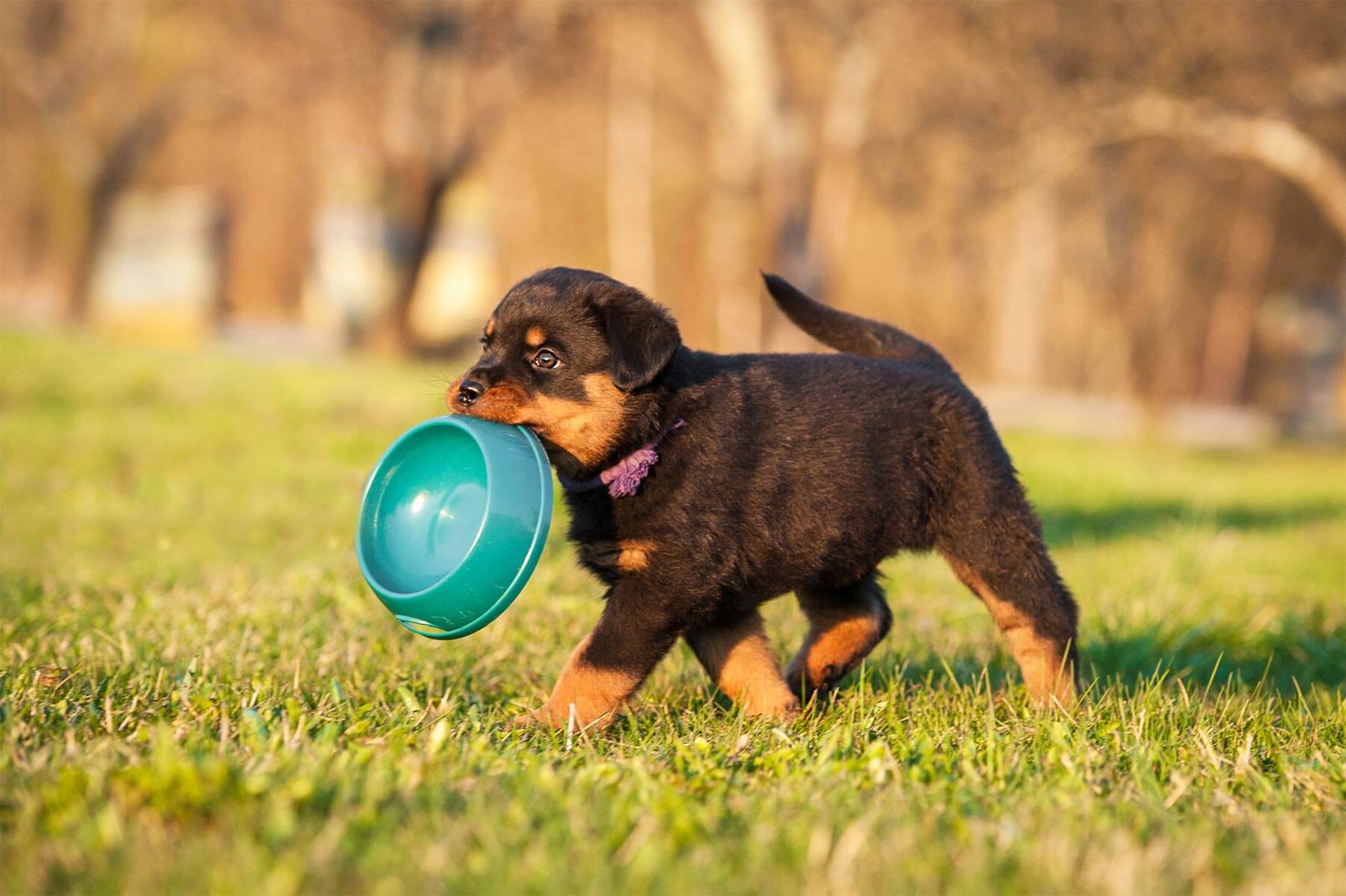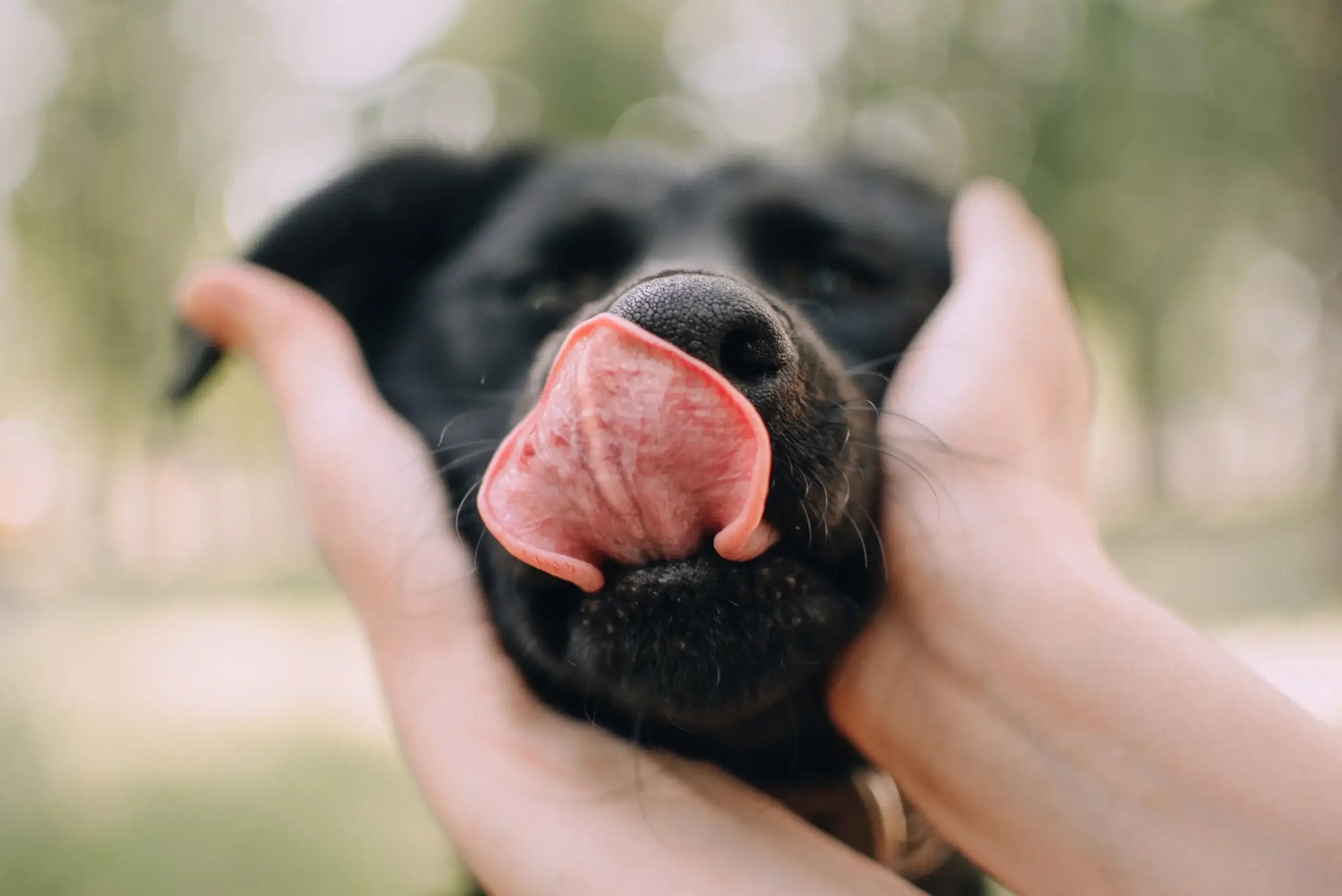Naju Pets | August 18, 2025

Why Proper Puppy Feeding Matters
Proper feeding during puppyhood sets the stage for lifelong health and happiness. Puppies grow rapidly and have specific nutritional needs, making it essential to feed them correctly from the start.
Balanced nutrition supports healthy bones, joints, and immune function, helping prevent common issues like obesity and developmental disorders. By following clear puppy feeding guidelines, you’ll give your furry friend the best chance at a healthy, energetic life.
In this guide, we’ll answer common questions like “how much to feed a puppy by weight” and “how often should puppies eat,” so you can confidently nourish your new companion.
How Often Should You Feed a Puppy?
Puppies thrive on consistency, and establishing a regular feeding schedule is essential for their growth and digestion. The number of daily feedings varies based on age:
- 6–12 weeks: 4 meals a day
- 3–6 months: 3 meals a day
- 6–12 months: 2 meals a day
Frequent, smaller meals help young puppies digest their food more easily and maintain stable energy levels. As your puppy matures, gradually reducing the frequency of feedings encourages healthy digestion and routine.
Keeping a consistent feeding schedule also makes housetraining easier by predicting when your puppy will need bathroom breaks.
Puppy Feeding Chart by Age and Weight
To simplify feeding your puppy, use this easy-to-follow feeding chart as a general guide. Adjust portions based on your puppy’s specific breed, size, activity level, and veterinarian recommendations.
General Puppy Feeding Chart:
| Puppy Weight | 6–12 Weeks | 3–6 Months | 6–12 Months |
| 3–5 lbs | ½–1 cup/day | ½–¾ cup/day | ½ cup/day |
| 5–10 lbs | 1–1½ cups/day | ¾–1 cup/day | ½–1 cup/day |
| 10–20 lbs | 1½–2½ cups/day | 1–2 cups/day | 1–1½ cups/day |
| 20–30 lbs | 2½–3½ cups/day | 2–2¾ cups/day | 1½–2 cups/day |
| 30–50 lbs | 3½–5 cups/day | 2¾–4 cups/day | 2–2¾ cups/day |
Note: Always choose high-quality, vet-recommended puppy food appropriate for your puppy’s breed size—especially when feeding large or small breeds, as their nutritional needs vary significantly.
Choosing the Best Puppy Food
Picking the right food is crucial for your puppy’s health and growth. Here’s what to consider when choosing the best puppy food:
- Complete and Balanced Nutrition:
Look for food labeled as meeting AAFCO nutritional standards for puppies. This ensures it provides essential nutrients like proteins, fats, vitamins, and minerals. - Breed-Specific Formulas:
Small-breed puppies benefit from nutrient-dense formulas designed for higher metabolisms. Large-breed puppies need foods formulated for controlled growth to prevent joint issues. - Food Types:
- Dry Kibble: Economical and convenient, good for dental health.
- Wet Food: Easier to chew, ideal for picky eaters or smaller breeds.
- Fresh or Raw Diets: Can be beneficial, but consult your vet first for balanced feeding.
If unsure, ask your vet for recommendations on high-quality, puppy-specific foods suited to your puppy’s unique needs.
When Can Puppies Eat Dry Food?
Puppies typically begin transitioning from mother’s milk or formula to solid food around 4–6 weeks of age. During this period, you can introduce dry kibble by softening it with warm water or mixing it with wet puppy food.
Here’s how to smoothly transition your puppy to dry food:
- Start by mixing 75% wet or softened food and 25% dry food.
- Gradually increase the dry food portion over 2–3 weeks until they’re eating fully dry kibble.
- By 8–10 weeks, most puppies comfortably eat dry food.
Switching gradually helps prevent digestive upset and eases your puppy into their new feeding routine.
Can Puppies Eat Adult Dog Food?
While puppies may occasionally nibble adult dog food without immediate harm, it’s not ideal for regular feeding. Puppy-specific food contains the right balance of calories, protein, calcium, and other essential nutrients required for healthy growth.
Feeding puppies adult dog food regularly can lead to:
- Nutritional deficiencies (due to lower protein and nutrients)
- Growth complications (like weak bones or joint problems)
- Digestive issues
Most puppies can safely transition to adult dog food around 12 months, but large-breed puppies should wait until around 18–24 months due to their longer growth period.
Always consult your vet about the right time to switch to adult dog food based on your puppy’s breed, size, and individual needs.
Common Puppy Feeding Mistakes to Avoid
Avoid these common feeding pitfalls to ensure your puppy stays healthy and happy:
- Overfeeding or Underfeeding:
Always follow puppy feeding guidelines closely. Too much food leads to obesity and joint issues, while too little hampers growth and development. - Free-Feeding (Leaving Food Out All Day):
Puppies benefit from structured meal times. Free-feeding can lead to picky eating, obesity, and housetraining difficulties. - Feeding Inappropriate Human Foods:
Human foods like chocolate, grapes, onions, garlic, and fatty foods can be harmful or toxic. Stick to puppy-safe treats and food.
By avoiding these mistakes, you’ll help your puppy develop healthy eating habits from the start.
Final Tips: How to Create a Puppy Feeding Schedule That Works
Creating an effective puppy feeding schedule doesn’t have to be complicated. Follow these practical tips to keep it simple and successful:
- Consistency is Key:
Feed your puppy at the same time each day to help regulate digestion and make potty training easier. - Monitor and Adjust:
Regularly check your puppy’s weight, energy levels, and overall health. Adjust portions slightly based on their individual needs. - Limit Treats:
Treats are great for training but should make up no more than 10% of your puppy’s daily calorie intake to prevent overfeeding. - Routine Vet Checkups:
Regular visits to your veterinarian ensure your puppy’s feeding plan stays perfectly suited to their growth and health needs.
By sticking to a clear, manageable feeding routine and consulting your vet regularly, you’ll set your puppy up for lifelong health and happiness.
Want more help caring for your furry friend?
Explore NaJu Pets’ trusted grooming, boarding, and daycare services to keep your puppy happy, healthy, and thriving!
NaJu Pets Disclaimer:
NaJu Pets is not a veterinarian. If you have concerns about your pet’s diet or specific health conditions, always consult with your vet before making dietary changes.


